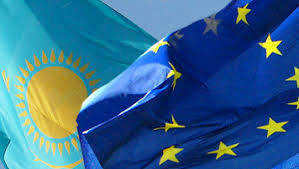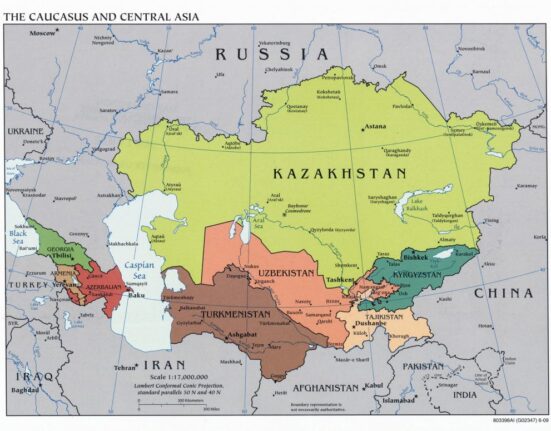The 44th annual meeting of the Berlin Eurasian Club took place in Brussels last week, focusing on the theme “The Middle Corridor and Global Gateway.” The discussions centered on Kazakhstan’s growing role in shaping a new architecture of transport connectivity between Europe and Asia.
The meeting brought together representatives of government from Kazakhstan and the European Union, business associations, expert and academic communities, logistics companies, and financial institutions.
Kazakhstan’s Ambassador to Germany, Nurlan Onzhanov, emphasized that Kazakhstan is becoming an increasingly significant part of the European Union’s supply chain geography.
“This is not a temporary phenomenon but an objective long-term trend based on the dynamic growth of our economic potential and the development of infrastructure ensuring intercontinental connectivity. We are strengthening our partnership with the European Union and Germany, especially in the fields of transport and logistics,” noted the Ambassador.
Roman Vassilenko, Kazakhstan’s Permanent Representative to the EU, highlighted that this event takes place on the eve of an important milestone in Kazakhstan–EU relations — the 10th anniversary of the signing of the Enhanced Partnership and Cooperation Agreement, which covers 29 areas of bilateral and regional cooperation.
He drew participants’ attention to the dynamically developing Kazakhstan–EU relations, where issues of transport connectivity are becoming a key factor in further strengthening multifaceted cooperation. Vassilenko also underlined the European Union’s strong interest in developing the Trans-Caspian International Transport Route (TITR), noting that around €20 billion has been announced for its support, and called on European institutions to move towards the practical implementation of projects aimed at overcoming the so-called “bottlenecks” of the Middle Corridor.
Michael Harms, Executive Director of the German Eastern Business Association, noted that the Global Gateway is not only about linking China and Europe — it also represents the development of interregional trade and the strengthening of the EU’s neighborhood policy by connecting Central Asia, the Caucasus, and the EU through modern, sustainable transport and digital corridors.
“When trade flourishes, investment follows. Reliable logistics ensure that goods reach markets on time, creating new value chains and industrial partnerships. Without a functioning transport infrastructure, even access to critical raw materials loses its meaning,” emphasized Mr. Harms.
During the panel discussion, participants examined prospects for cooperation in specific sectors, as well as the experience and plans of German and European logistics companies seeking to expand their operations in Kazakhstan.




